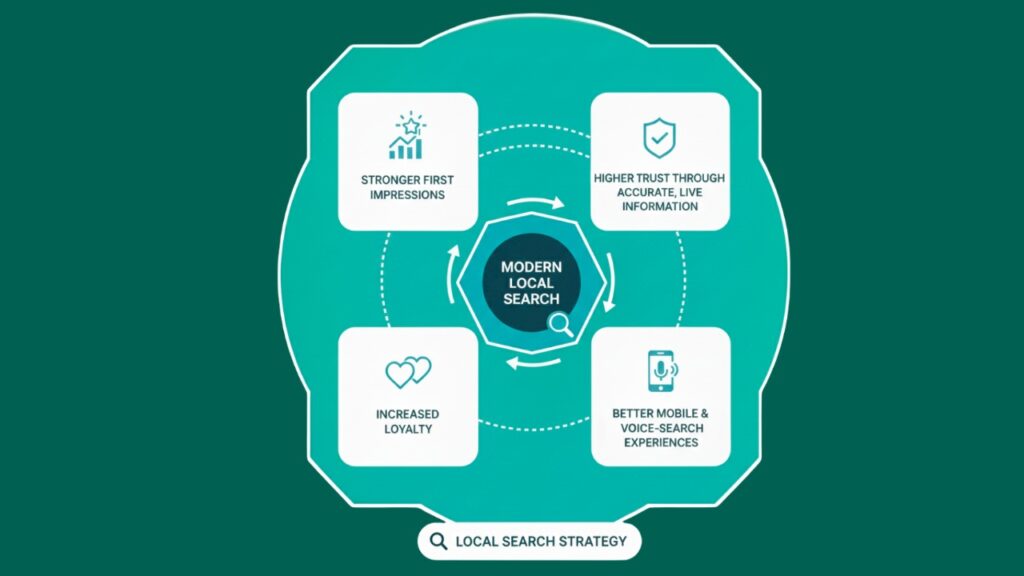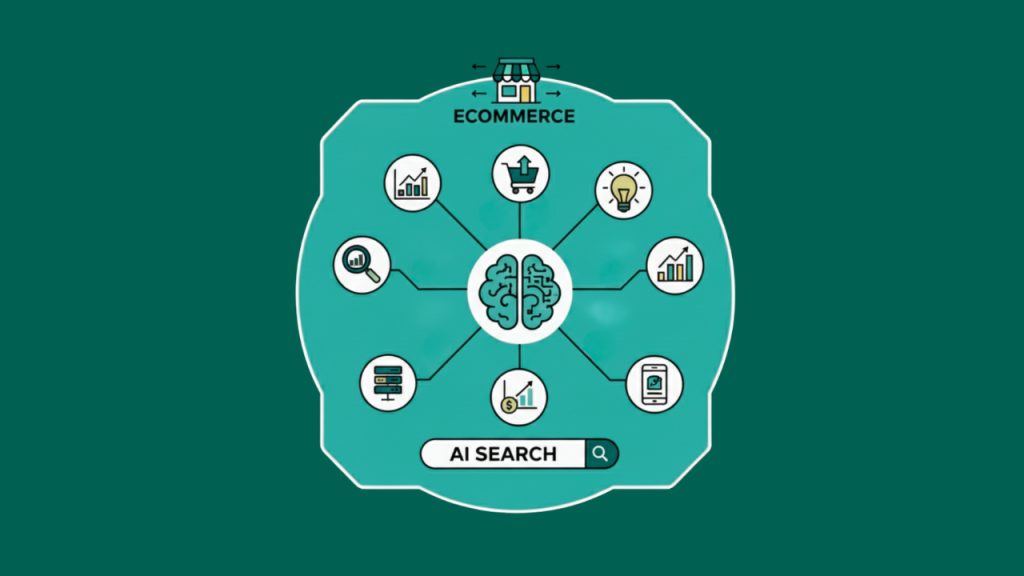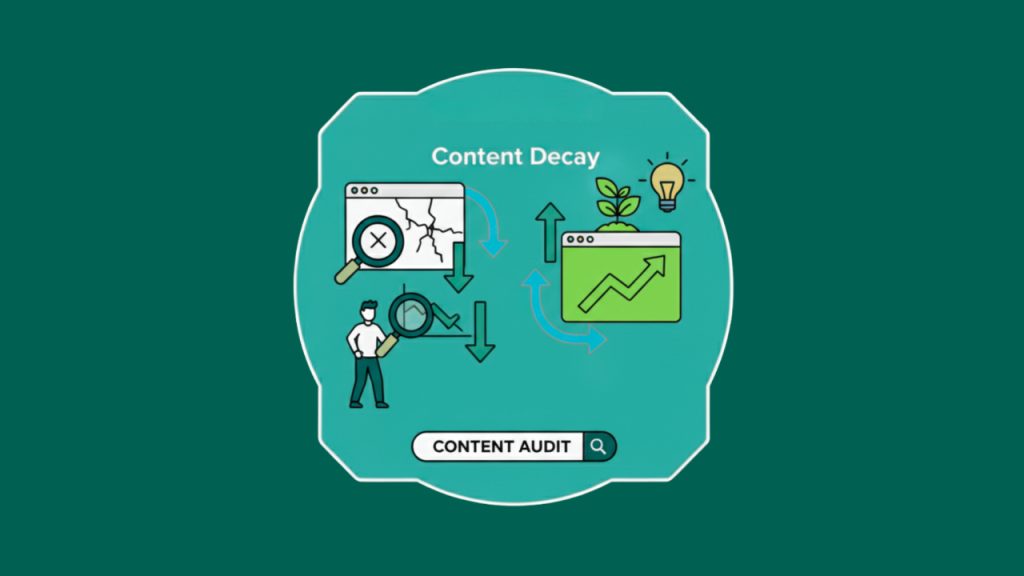Search engines never sit still. One update rolls out, and suddenly your rankings are down. What worked last month might not work tomorrow. That is the wild part of digital growth. It moves fast and does not wait for anyone.
Your SEO strategy must keep up and also remain ahead of the curve. The idea is not to cheat the system, but to flourish alongside it.
This blog will guide you through what to do to stay ahead in the digital world.
Table of Contents
Why Traditional SEO Tactics Are Losing Their Impact
Search engines have grown smarter. The old hacks like keyword stuffing, link swaps, and filler posts no longer fool Google. Its algorithms read like people now. They understand meaning, intent, and what content truly helps.
SEO is no longer about tricks. It is about creating something real that teaches, connects, or solves a problem. The web has changed, and your strategy needs to change with it.
Keyword Stuffing and Over-Optimisation Don’t Work Anymore
There was a time when repeating the same word again and again could make a page rank. That time is gone. Google looks for clarity, not clutter.
If your writing sounds forced or robotic, it gets ignored. The algorithm cares more about intent. It checks whether your page gives users what they came for.
This is where semantic SEO helps. It is about writing naturally, covering related ideas, and showing that you know your topic well. When your content feels human and connected, Google trusts it more.
Link Quantity vs. Link Quality
Links still matter, but not in large numbers. People once chased hundreds of backlinks just to climb the rankings. Now, that can damage your site.
Google’s Penguin updates made it clear that a few strong links from credible sources are better than dozens from random blogs. The best links come naturally when people find your content useful enough to reference.
So stop chasing link trades or mass guest posts. Create content that people want to share. That is how real authority grows.
Ignoring User Experience Hurts Rankings
Even good content can fail if your site frustrates visitors. Google watches how people use your website. It notices how fast it loads, how stable it looks, and how easy it is to move around.
If your page loads slowly or jumps around while opening, people leave. When they do, Google sees it as a bad sign.
A clean, fast, mobile-friendly site keeps users on the page longer. That shows Google your content delivers value. The better the experience, the higher your chance to rank.
What to Change in Your SEO Strategy for 2025
Focus on Intent, Not Just Keywords
- Informational intent is about learning. Example: how to improve page speed.
- Navigational intent helps users find something specific. Example: Google Search Console login.
- Transactional intent targets action. Example: best SEO tools for a small business.
Write for Voice and AI-Powered Search
AI search is changing how people ask questions. Tools like ChatGPT, Gemini, and Google’s Search Generative Experience (SGE) reward clear, conversational answers.
People don’t type stiff phrases anymore. They speak in full questions like they are talking to a friend. That’s your cue. Write like you talk. Target long-tail phrases such as What’s the best way to boost local SEO for restaurants? instead of short, robotic ones like local SEO tips.
Structure your content properly so it’s easy to scan and read aloud. Add schema markup, FAQs, and clear headings. These technical SEO tips help AI understand your content better, and give you a higher chance of showing up in voice search results.
Build Topical Authority, Not Random Posts
One-off blog posts don’t cut it anymore. Google values depth and consistency. That’s where topical authority comes in.
Start with one main topic page, your “pillar.” For example, SEO for eCommerce. Then build smaller posts that dig into details like product page optimisation, schema, or user reviews. Link everything together.
This cluster approach tells Google that you know your subject. It keeps readers exploring your site longer, improving engagement and credibility. The more connected your content, the stronger your authority.
Strengthen Your E-E-A-T SEO
Google wants expertise it can trust. That’s why E-E-A-T SEO: Experience, Expertise, Authoritativeness, and Trustworthiness matters more than ever.
Show real experience. Use examples, case studies, or data from your own work. Share practical insights instead of empty tips. Build authoritativeness by earning backlinks or mentions from respected sites. And be transparent, add author bios, cite sources, and link to verified research.
The Role of AI and Automation in Modern SEO
Using AI Tools for Smarter Insights
AI has changed how SEO works. It turns raw data into a clear direction. With machine learning, marketers can find patterns and opportunities that old methods miss.
AI keyword tools now study intent, trends, and behaviour across millions of searches. They show what people want before they even type it. Platforms like Ahrefs, SEMrush, and Google’s AI tools go beyond numbers. They reveal meaning and context.
AI also simplifies competitor research. It shows which keywords drive traffic, where backlinks come from, and how content performs. With predictive analytics, you can prepare for algorithm shifts instead of reacting to them.
This makes your SEO strategy proactive. You stop chasing updates and start leading with insight.
Maintaining Human Creativity in the AI Era
AI can guide your plan, but it can not feel. Data alone can not tell a story or move people. That’s where human creativity matters most.
Writers bring voice, empathy, and emotion, the elements that turn useful content into memorable experiences. The best SEO strategy blends both. Let AI handle data and structure. Let humans shape the story.
When logic meets imagination, your SEO is not just smart. It is alive.
Technical SEO Tweaks You Can’t Ignore in 2025
Site Speed and Core Web Vitals
Speed decides if users stay or leave. Google tracks this through Core Web Vitals. It shows how fast your page loads, how quickly it reacts, and how steady it feels while opening. A slow or shaky page signals a poor experience.
Keep your pages light. Compress visuals, cache assets, and cut unnecessary code. Even a one-second delay can push visitors away. Fast sites don’t just please people; they also earn Google’s trust.
Structured Data & Schema Markup
Search engines now want meaning, not just words. Schema markup gives your content context. It tells Google what your page is and boosts your odds of landing rich results.
Add simple structured data to key pages. It helps your listings show prices, ratings, or FAQs right in the search results. This tiny tweak can raise clicks and authority without changing your writing style.
Mobile-First and Visual Search Optimisation
Most searches start on phones, and Google knows it. Your mobile layout is now your main site. If it’s clunky or slow, your rankings drop. Make sure it loads fast, scrolls smoothly, and reads well on small screens.
At the same time, visual search keeps growing. People snap a photo or use Google Lens instead of typing. Add short, clear alt text to your images and keep them light. It helps both screen readers and algorithms find your work faster.
A polished, mobile-friendly design with smart visuals does not just look good; it is a quiet power move for your SEO strategy.
Measuring Success in the New SEO Landscape
Beyond Rankings: Focus on Conversions and Engagement
Ranking high looks good, but it’s not the end goal. What people do after clicking matters most. Watch how long they stay, where they scroll, and what they press. These small actions show what grabs attention and what loses it.
If visitors leave fast, fix the layout or rewrite your call to action. Make it easier to read. Keep the flow natural. The aim is not just traffic; it’s connection. When people stay longer and explore more, your SEO strategy builds trust and turns clicks into customers.
Data-Driven Experimentation
Good SEO never stands still. Test everything, change one headline, and try a shorter intro. Watch what works better. Even tiny edits can shift results fast. Data tells the truth. Use it to guide choices, not guesswork.
Combine those numbers with smart technical SEO tips. That’s how your site grows stronger and stays ahead when search rules change.
Conclusion
SEO keeps changing, and so should you. It is no longer just about high rankings. Real growth comes from trust, relevance, and a focus on people. Keep testing what works, and study your results. Adjust your SEO strategy to match new trends and user needs.
Search will always move forward. Work with Midland Marketing to stay a step ahead. Create content that helps, teaches, and connects. When users find real value, results follow on their own.
In 2025, the strongest brands won’t chase every update. They will learn, adapt, and grow with change.
Frequently Asked Questions
- What does it mean to future-proof your SEO strategy?
It means planning for change. Create helpful content, keep your site fast, and stay flexible so updates never damage your growth.
- Why is keyword stuffing no longer effective?
Google understands the meaning now. Too many keywords sound fake and lower quality. Write simply and focus on what users need.
- How can AI tools help improve SEO performance?
AI studies data fast. It finds trends, tracks rivals, and spots ranking chances. Use its insights, then add your own creative touch.
- What are the key Technical SEO tips for 2025?
Keep pages quick, clean, and mobile-friendly. Fix broken links, add schema, and monitor Core Web Vitals for a smoother user experience.
- How often should I review my SEO strategy?
Check every few months. Study results, update weak spots, and adjust to new trends to keep your plan strong.












